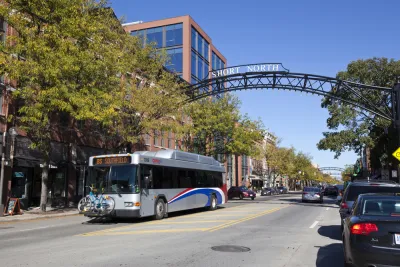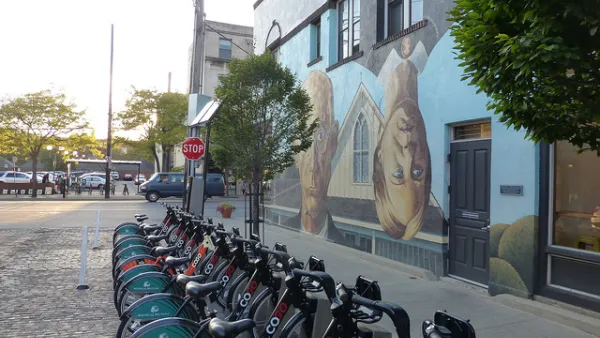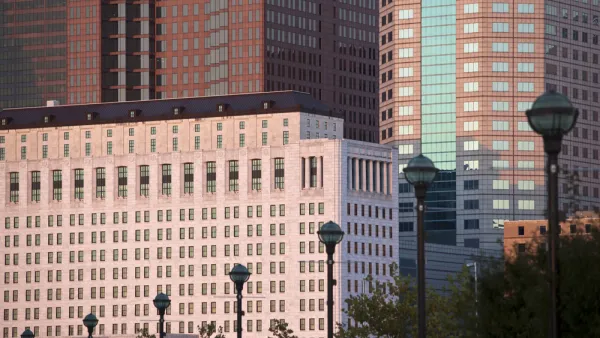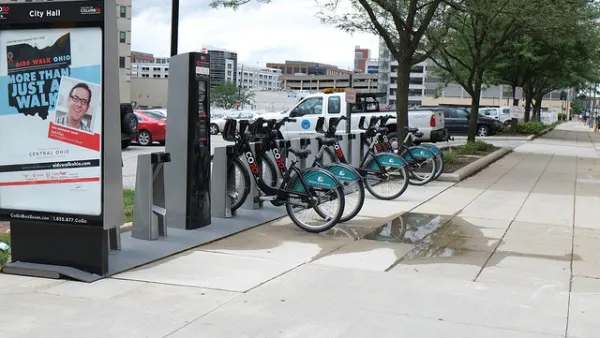The former program manager for Smart Columbus discusses the successes, challenges, and unexpected opportunities encountered by the city as it worked to integrate technology into city services and programs.

When Columbus won up to $50 million in grant funds through the Department of Transportation's Smart City Challenge program in 2016, the city "implemented a sophisticated operating system that handled complex data analytics; connected vehicle technology; a prenatal trip assistance program; kiosks that help residents plan trips; autonomous shuttles; a trip-planning app called Pivot; and a parking payment app." With the program having just concluded, Danielle McLean relates Smart Cities Dive's interview with Mandy K. Bishop, Columbus’ deputy director of public service and former Smart Columbus program manager. Bishop reflects on the challenges and opportunities presented by the program and how the city plans to continue the most successful parts of the program.
Bishop recounts the efforts the city made to "reach communities through multiple different media, including digital" but also more time-consuming outreach methods like door hangers and printed informational materials. During its implementation, the program "reduced greenhouse gas emissions estimated by about two and three-quarters percent," developed a public transit and mobile parking app, and created a broadband pilot program.
When looking to implement 'smart city' solutions, she recommends engaging with residents throughout the process, which "develops a level of trust" and provides a continual input of information from the community. In this way, Bishop says, "[y]ou end up with a product that actually solves the user challenge at the end."
Bishop says the initiative also identified new needs and opportunities for the future. "[Y]ou’re going to continue to see a leveraging of the engagement platforms that we built, we’re going to continue to see availability of the new mobility applications as well as infrastructure that we built including our connected vehicle environment. You’re going to continue seeing the city iterate and challenge itself to be bold."
FULL STORY: 6 questions with Smart Columbus on lessons since program's conclusion

Analysis: Cybertruck Fatality Rate Far Exceeds That of Ford Pinto
The Tesla Cybertruck was recalled seven times last year.

National Parks Layoffs Will Cause Communities to Lose Billions
Thousands of essential park workers were laid off this week, just before the busy spring break season.

Retro-silient?: America’s First “Eco-burb,” The Woodlands Turns 50
A master-planned community north of Houston offers lessons on green infrastructure and resilient design, but falls short of its founder’s lofty affordability and walkability goals.

Test News Post 1
This is a summary

Analysis: Cybertruck Fatality Rate Far Exceeds That of Ford Pinto
The Tesla Cybertruck was recalled seven times last year.

Test News Headline 46
Test for the image on the front page.
Urban Design for Planners 1: Software Tools
This six-course series explores essential urban design concepts using open source software and equips planners with the tools they need to participate fully in the urban design process.
Planning for Universal Design
Learn the tools for implementing Universal Design in planning regulations.
EMC Planning Group, Inc.
Planetizen
Planetizen
Mpact (formerly Rail~Volution)
Great Falls Development Authority, Inc.
HUDs Office of Policy Development and Research
NYU Wagner Graduate School of Public Service




























